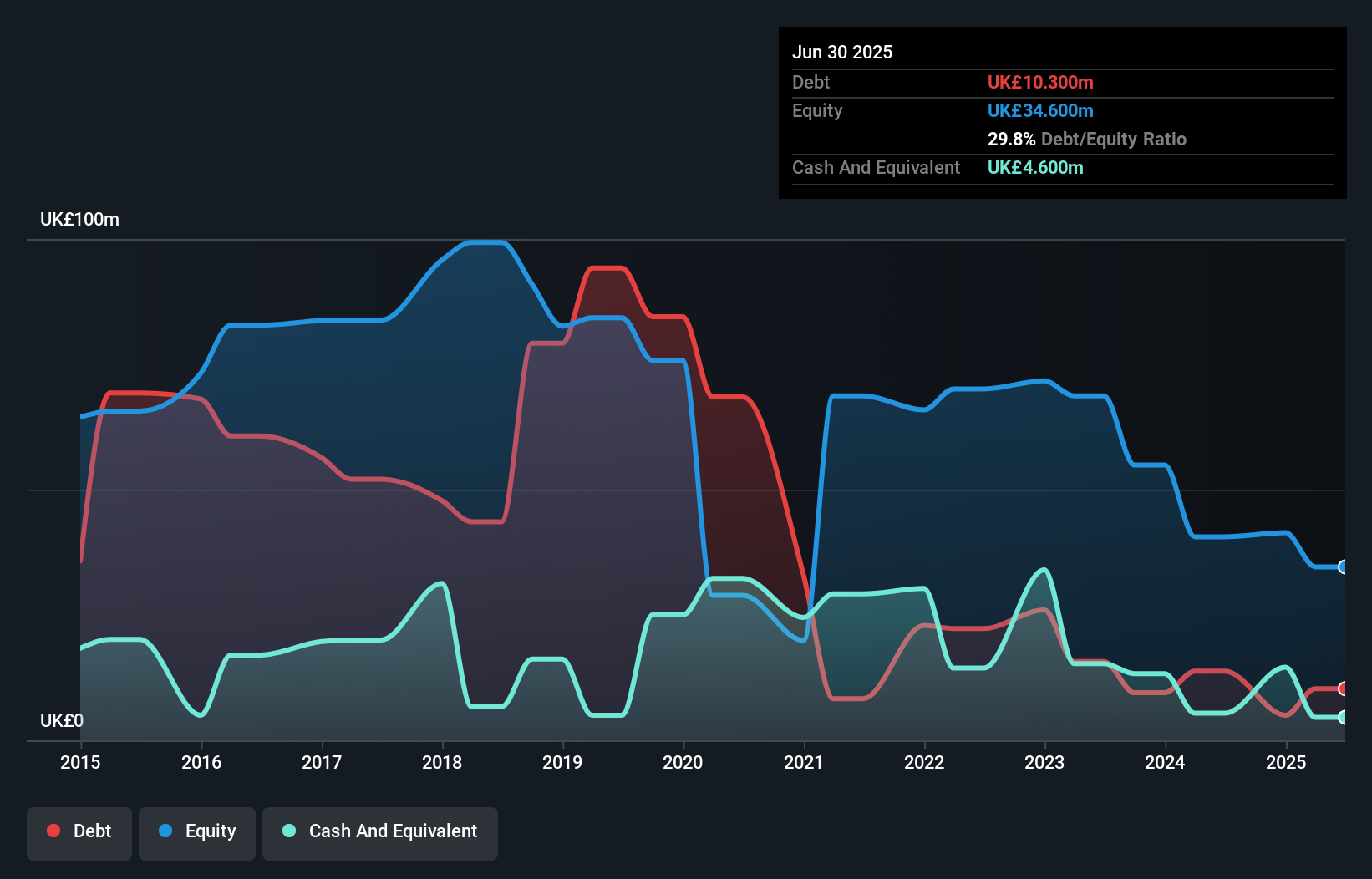- United Kingdom
- /
- Professional Services
- /
- AIM:STAF
We Think Staffline Group (LON:STAF) Has A Fair Chunk Of Debt
Some say volatility, rather than debt, is the best way to think about risk as an investor, but Warren Buffett famously said that 'Volatility is far from synonymous with risk.' So it seems the smart money knows that debt - which is usually involved in bankruptcies - is a very important factor, when you assess how risky a company is. We can see that Staffline Group PLC (LON:STAF) does use debt in its business. But should shareholders be worried about its use of debt?
Why Does Debt Bring Risk?
Generally speaking, debt only becomes a real problem when a company can't easily pay it off, either by raising capital or with its own cash flow. In the worst case scenario, a company can go bankrupt if it cannot pay its creditors. However, a more frequent (but still costly) occurrence is where a company must issue shares at bargain-basement prices, permanently diluting shareholders, just to shore up its balance sheet. Of course, debt can be an important tool in businesses, particularly capital heavy businesses. The first step when considering a company's debt levels is to consider its cash and debt together.
How Much Debt Does Staffline Group Carry?
As you can see below, Staffline Group had UK£10.3m of debt at June 2025, down from UK£13.8m a year prior. However, because it has a cash reserve of UK£4.60m, its net debt is less, at about UK£5.70m.

How Strong Is Staffline Group's Balance Sheet?
Zooming in on the latest balance sheet data, we can see that Staffline Group had liabilities of UK£159.4m due within 12 months and liabilities of UK£3.60m due beyond that. Offsetting these obligations, it had cash of UK£4.60m as well as receivables valued at UK£120.7m due within 12 months. So it has liabilities totalling UK£37.7m more than its cash and near-term receivables, combined.
This is a mountain of leverage relative to its market capitalization of UK£53.3m. Should its lenders demand that it shore up the balance sheet, shareholders would likely face severe dilution. When analysing debt levels, the balance sheet is the obvious place to start. But ultimately the future profitability of the business will decide if Staffline Group can strengthen its balance sheet over time. So if you want to see what the professionals think, you might find this free report on analyst profit forecasts to be interesting.
View our latest analysis for Staffline Group
Over 12 months, Staffline Group reported revenue of UK£1.0b, which is a gain of 16%, although it did not report any earnings before interest and tax. That rate of growth is a bit slow for our taste, but it takes all types to make a world.
Caveat Emptor
Over the last twelve months Staffline Group produced an earnings before interest and tax (EBIT) loss. Indeed, it lost UK£1.7m at the EBIT level. Considering that alongside the liabilities mentioned above does not give us much confidence that company should be using so much debt. Quite frankly we think the balance sheet is far from match-fit, although it could be improved with time. On the bright side, we note that trailing twelve month EBIT is worse than the free cash flow of UK£15m and the profit of UK£4.3m. So one might argue that there's still a chance it can get things on the right track. The balance sheet is clearly the area to focus on when you are analysing debt. However, not all investment risk resides within the balance sheet - far from it. For example, we've discovered 3 warning signs for Staffline Group that you should be aware of before investing here.
If you're interested in investing in businesses that can grow profits without the burden of debt, then check out this free list of growing businesses that have net cash on the balance sheet.
New: Manage All Your Stock Portfolios in One Place
We've created the ultimate portfolio companion for stock investors, and it's free.
• Connect an unlimited number of Portfolios and see your total in one currency
• Be alerted to new Warning Signs or Risks via email or mobile
• Track the Fair Value of your stocks
Have feedback on this article? Concerned about the content? Get in touch with us directly. Alternatively, email editorial-team (at) simplywallst.com.
This article by Simply Wall St is general in nature. We provide commentary based on historical data and analyst forecasts only using an unbiased methodology and our articles are not intended to be financial advice. It does not constitute a recommendation to buy or sell any stock, and does not take account of your objectives, or your financial situation. We aim to bring you long-term focused analysis driven by fundamental data. Note that our analysis may not factor in the latest price-sensitive company announcements or qualitative material. Simply Wall St has no position in any stocks mentioned.
About AIM:STAF
Staffline Group
Provides recruitment and outsourced human resource services in the United Kingdom and the Republic of Ireland.
Undervalued with adequate balance sheet.
Similar Companies
Market Insights
Community Narratives





